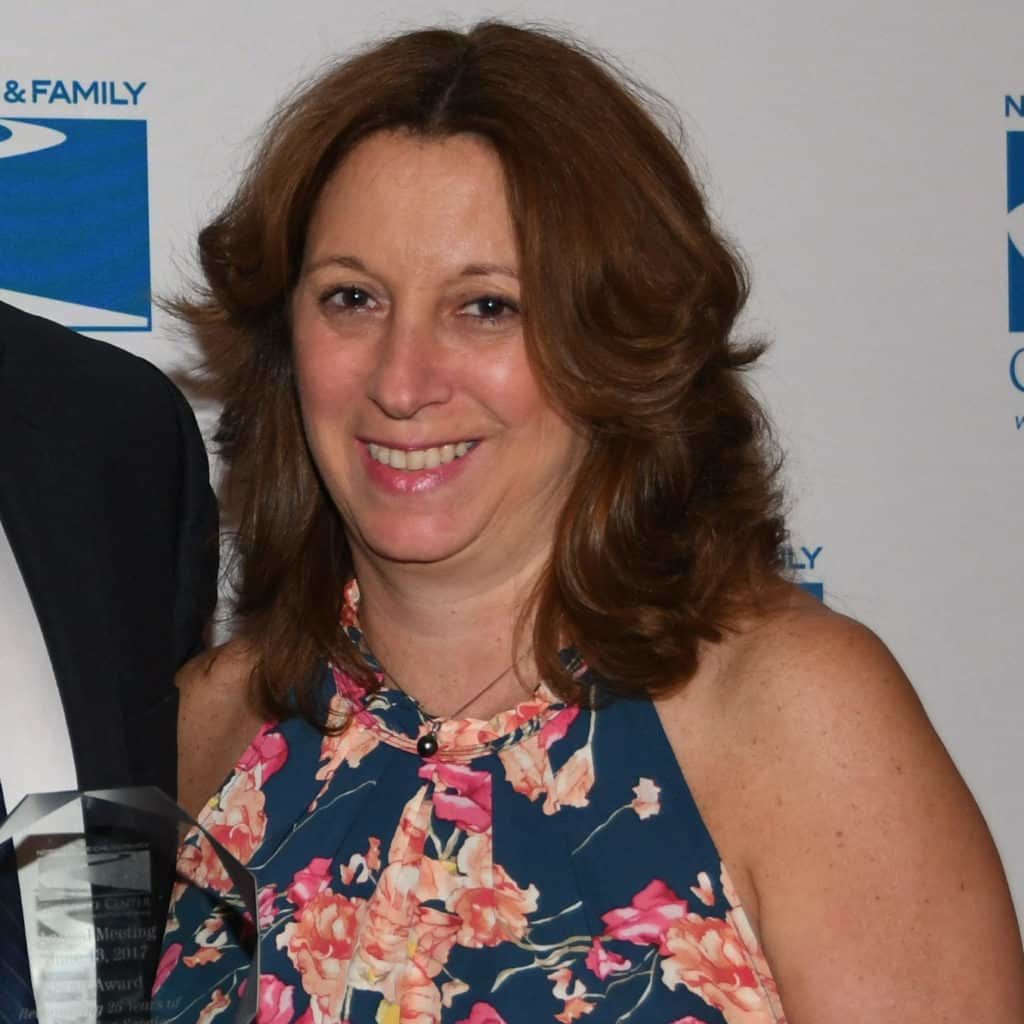
by North Shore Child & Family Guidance Center | Aug 17, 2020 | Press Releases
Roslyn Heights, NY, August 17, 2020 — North Shore Child & Family Guidance Center is pleased to announce that the nonprofit organization received a Community Development Block Grant (CDBG) from Nassau County for $147,500 to support its work serving Long Island’s communities during the pandemic crisis.
“During this most troubling and stressful time for so many families of all backgrounds, we are grateful to Nassau County for awarding us a Community Development Block Grant COVID grant,” said Andrew Malekoff, Executive Director of the Guidance Center. “It could not have come at a better time. We are seeing an increase in young people who are experiencing depression and anxiety, are at risk for suicide and other self-harming behaviors, and cannot afford to be placed on a waiting list. This funding supports our ability to offer a rapid response and quality mental health care for all families who need us regardless of their ability to pay.”
Nassau County distributed nearly $2.5 million in federal CDBG-COVID funding to 12 non-profit partners and nine municipalities across Nassau County to provide mental health and substance abuse services, youth and senior services, and health, safety, and accessibility upgrades for local community centers.
North Shore Child & Family Guidance Center, the leading children’s mental health agency on Long Island, is seeing new and existing clients via telephone and video during the COVID-19 crisis. To make an appointment, call (516) 626-1971. Visit www.northshorechildguidance.org for more information.
About Us:
As the preeminent not-for-profit children’s mental health agency on Long Island, North Shore Child & Family Guidance Center is dedicated to restoring and strengthening the emotional well-being of children (from birth – age 24) and their families. Our highly trained staff of psychiatrists, psychologists, social workers, vocational rehabilitation counselors and other mental health professionals lead the way in diagnosis, treatment, prevention, training, parent education, research and advocacy. The Guidance Center helps children and families address issues such as depression and anxiety; developmental delays; bullying; teen pregnancy; sexual abuse; teen drug and alcohol abuse; and family crises stemming from illness, death, trauma and divorce. For more than 65 years, the Guidance Center has been a place of hope and healing, providing innovative and compassionate treatment to all who enter our doors, regardless of their ability to pay. For more information about the Guidance Center, visit www.northshorechildguidance.org or call (516) 626-1971.

by North Shore Child & Family Guidance Center | Aug 17, 2020 | Anton Media, Press Releases
On Tuesday, August 4, heavy wind and rain from Tropical Storm Isaias hit much of the east coast. More than 2 million customers in New York, New Jersey and Connecticut lost power as a result of the storm’s impact. One week later, some are still in the dark.
While power outages are always frustrating, the situation was made much more difficult with the ongoing COVID-19 pandemic. A large number of people are working from home and are dependent on their power, WiFi and phone services to be able to do so. With the cancellation of many summer programs and activities, lots of kids are bored at home already, and without power, they lose much of the entertainment they rely on so heavily.
As Director of Early Childhood and Psychological Services at North Shore Child & Family Guidance Center, I’ve seen how COVID-19 and social distancing protocols have reduced or even eliminated many opportunities for respite, such as staying at the home of a friend or relative who has power. All your usual options that can help in an outage aren’t necessarily there.
It is crucial that parents do their best to remain calm, as your children will model their own behavior from you. When you lose it, they will do the same—and, fortunately, the opposite is true, too.
Before the next outage hits, take preventative actions by creating power outage kits for the entire family. These should include necessities such as flashlights, batteries, nonperishable food and water, but also off-the-grid activities for the family to participate in together. In our digital world, it is especially important for children to find engaging activities that do not take place on a screen. Power outages provide an opportunity to introduce these experiences to your children and remind them of the need to disconnect every so often.
Though it can be hard to find anything positive that has come from the COVID-19 pandemic, parents have mastered the act of improvisation. For months, they’ve learned how to entertain anxious children and navigate uncertainty. While power outages can be difficult, they offer yet another opportunity to spend quality time with your children and to explore new activities.
Parents need to take a step back and try to think outside of the box. Power outages have provided the foundation for some of my most treasured memories. One time, my daughter wanted to bake cookies, but due to the power outage, she attempted to make them on a pancake griddle. Though the cookies may not have turned out as good as usual, the memory is one that always brings a smile.
Parents should also attempt to find the positive in this situation. Just as your children should try different, off-the-grid activities, you should do the same. It’s easy to slip back into the smartphone-focused world we usually live in. Use this opportunity to establish small habits such as daily reading or writing time or meditation exercises that can bring calm to your day.
Younger children may enjoy hands-on activities such as making crafts, going on a scavenger hunt, putting on a puppet show or playing dress up. Older children can get lost in a book, engage in healthy competition in a board game or learn card games.
No matter the season, power outages are difficult for families to deal with, but when they occur alongside a pandemic and a heat wave, they are even more challenging. However, this experience may serve as a teaching moment for parents and kids to learn the benefits of unplugging and finding enjoyment in the simple things in life.
Dr. Sue Cohen is the Director of Early Childhood and Psychological Services at North Shore Child & Family Guidance Center, the leading children’s mental health agency on Long Island. The Guidance Center is seeing new and existing clients via telephone and video during the COVID-19 crisis. To make an appointment, call (516) 626-1971.

by North Shore Child & Family Guidance Center | Aug 13, 2020 | Blog
On Tuesday, August 4, heavy wind and rain from Tropical Storm Isaias hit much of the east coast. More than 2 million customers in New York, New Jersey and Connecticut lost power as a result of the storm’s impact. One week later, some are still in the dark.
While power outages are always frustrating, the situation was made much more difficult with the ongoing COVID-19 pandemic. A large number of people are working from home and are dependent on their power, WiFi and phone services to be able to do so. With the cancellation of many summer programs and activities, lots of kids are bored at home already, and without power, they lose much of the entertainment they rely on so heavily.
As Director of Early Childhood and Psychological Services at North Shore Child & Family Guidance Center, I’ve seen how COVID-19 and social distancing protocols have reduced or even eliminated many opportunities for respite, such as staying at the home of a friend or relative who has power. All your usual options that can help in an outage aren’t necessarily there.
It is crucial that parents do their best to remain calm, as your children will model their own behavior from you. When you lose it, they will do the same—and, fortunately, the opposite is true, too.
Before the next outage hits, take preventative actions by creating power outage kits for the entire family. These should include necessities such as flashlights, batteries, nonperishable food and water, but also off-the-grid activities for the family to participate in together. In our digital world, it is especially important for children to find engaging activities that do not take place on a screen. Power outages provide an opportunity to introduce these experiences to your children and remind them of the need to disconnect every so often.
Though it can be hard to find anything positive that has come from the COVID-19 pandemic, parents have mastered the act of improvisation. For months, they’ve learned how to entertain anxious children and navigate uncertainty. While power outages can be difficult, they offer yet another opportunity to spend quality time with your children and to explore new activities.
Parents need to take a step back and try to think outside of the box. Power outages have provided the foundation for some of my most treasured memories. One time, my daughter wanted to bake cookies, but due to the power outage, she attempted to make them on a pancake griddle. Though the cookies may not have turned out as good as usual, the memory is one that always brings a smile.
Parents should also attempt to find the positive in this situation. Just as your children should try different, off-the-grid activities, you should do the same. It’s easy to slip back into the smartphone-focused world we usually live in. Use this opportunity to establish small habits such as daily reading or writing time or meditation exercises that can bring calm to your day.
Younger children may enjoy hands-on activities such as making crafts, going on a scavenger hunt, putting on a puppet show or playing dress up. Older children can get lost in a book, engage in healthy competition in a board game or learn card games.
No matter the season, power outages are difficult for families to deal with, but when they occur alongside a pandemic and a heat wave, they are even more challenging. However, this experience may serve as a teaching moment for parents and kids to learn the benefits of unplugging and finding enjoyment in the simple things in life.
Sources:
After Isaias, 2.5 Million Still Without Power in New York Area
50 Things to Do with Children in Power Outage

by North Shore Child & Family Guidance Center | Aug 6, 2020 | Blog
This school year will certainly be one like no other. For college students like myself, the idea of another remote semester can be incredibly frustrating, and it is hard not to feel anxious about the opportunities and experiences we have lost. College is built around time spent with peers, from living together in dorms to cheering on our school teams. With so much surrounding the COVID-19 pandemic still in flux, many college students do not know what this fall will bring.
I will be beginning my senior year at Fordham University in the Bronx this fall. I am incredibly grateful to be attending school in New York, where cases are considerably lower than the rest of the country. The process of moving in will not be as complicated, as I do not have to quarantine myself, nor do my roommates. Even so, I have struggled with a lot of anxiety throughout the summer already, wondering whether I am missing out on so many precious senior year traditions and whether we could potentially be sent back home.
Universities are taking many different approaches to the situation, and it largely depends on where the school is located. I was given the opportunity to opt for remote classes or in-person (with the professors being given the final say). I am able to live in my apartment on campus regardless of which method I choose.
With many classes being held online, whether by choice of the students or the professors, the financial benefits of still paying for on-campus housing or an apartment nearby are uncertain. Many students are grappling with paying large amounts of money to live with their peers and attempting to preserve what they can of the traditional college experience. Others are opting out, choosing to take online classes from home. Students from universities across the country have even urged for their schools to lower tuition due to online instruction.
There is no right answer in navigating the college experience amid the unprecedented pandemic we are facing. The decision to move on-campus, live in off-campus housing or stay home, as well as to take online or in-person classes, are deeply personal. Each student must consider their own comfort level, their physical and mental health, their financial situation and much more.
No matter what you have decided, the uncertainty looms above us all. It is hard not to feel like we are still losing so much as things continue to be cancelled or changed. Knowing that my senior year will, at least for the first half, be held largely online with a much quieter campus environment is upsetting, but I am comforted in knowing that we are all in this together. We are putting the health and safety of the community first, and that is what matters most.
I have found that this experience has taught me so much about myself. What I can handle, how much I can overcome. This generation that is experiencing such upheaval in times that are so precious will emerge with a strength that we will carry throughout our lives.
The uncertainty has brought many of us together, and this shared experience will be a deeper bond for the classes of 2020, 2021 and so on that we will not forget. We are also living in an age of technology that has allowed us to stay connected above all. While undoubtedly not the same, this technology is a vital tool for us to continue to remember those who are still by our side and who are struggling with the same worries and fears.
Anxiety is normal amid any kind of uncertainty, and we must learn to never feel guilty or ashamed for being worried. If you feel that you are struggling, do not hesitate to reach out to family or friends. There is no shame in seeking help — if you feel that you need assistance, mental health resources are here for you, including North Shore Child & Family Guidance Center, which is seeing clients remotely. Remember that asking for help is a sign of strength, not weakness.
Just months ago, many of us could never have imagined a situation like this. But here we are, and here we continue to go. We cannot make up for the time that would have been spent on campus. It is a reality we must come to terms with in order to move on. However, college is much more than the campus itself. It is the community forged from the shared experience of an institution and, if anything, going through this together, as a school community, can strengthen that. We know now that we can handle whatever is thrown our way.

by North Shore Child & Family Guidance Center | Jul 30, 2020 | Blog
Pregnancy and childbirth can be challenging experiences at any time. But amidst a global pandemic, many of the typical difficulties have been escalated. Many unknowns still linger regarding the potential impact COVID-19 can have during pregnancy as well as the virus’ potential impact on young children, making this an incredibly stressful time for new and expecting mothers in particular.
Unfortunately, one recent finding has demonstrated a worsening of anxiety and depression in new mothers during the COVID-19 pandemic. The study, from the University of Alberta, found that the rate of symptoms of depression in new mothers amid the pandemic was nearly three times the rate of new mothers’ symptoms pre-pandemic.
Concerns about financial security, job stability and overall health weigh far more heavily on new and expecting parents now than ever before. Considering the pandemic’s widespread financial difficulties, the prospect of paying for all the expenses that come with a new baby can be incredibly daunting.
The rate of symptoms of depression in
new mothers amid the pandemic was
nearly three times the rate
of new mothers’ pre-pandemic.
Added stress can also come from the precautionary measures to protect against the spread of COVID-19, especially social distancing. These measures can mean that extended family, grandparents particularly, may not be able to provide the support (such as childcare) for the new parents as they might normally. This can add to the parents’ stress and is also an immensely frustrating and disheartening reality for the grandparents and other family members who may not be able to see the new baby safely. Additionally, concern about potential exposure to the virus in public settings, especially during essential doctor visits for the newborn, aggravates anxiety symptoms.
Though the pandemic has heightened depression and anxiety rates for mothers, postpartum depression has been on the rise for many years. Postpartum depression is a mental health condition following childbirth in which a new mother experiences symptoms of depression that do not go away, as do the traditional “baby blues.” Some symptoms include feeling disconnected from the baby, a lack of motivation, restlessness and overwhelming feelings of sadness.
Statistics point to a notable disparity in the age of the mother. Teenagers face the most risk, with teenage mothers twice as likely to develop postpartum depression. Teenage mothers also suffer from higher suicidal ideation rates and are more likely to suffer from PTSD due to a higher likelihood of exposure to traumatic events.
Racial disparities play a role in both maternal mental health and teenage pregnancy. Researchers have noted that Black mothers suffer from postpartum depression and other perinatal mood disorders at a higher rate than white mothers. Additionally, though rates of teenage pregnancies have been decreasing across races, the pregnancy rate among Hispanic and non-Hispanic Black teenagers is more than twice that of non-Hispanic white teenagers. Given the connection between postpartum depression and teenage pregnancies, intersecting racial disparities can create an incredibly vulnerable new mothers’ population. COVID-19 has only added to this vulnerability, with the virus disproportionately affecting racial and ethnic minority groups.
North Shore Child & Family Guidance Center has two programs that address postpartum depression. One is called Good Beginnings for Babies, which seeks to help pregnant and parenting teens in a variety of areas to combat these vulnerabilities. Dr. Nellie Taylor-Walthrust, director of the program, explains, “The goal is to reduce the isolation of young parents in the early years of their child’s development and increase the community’s sense of responsibility for young families, by building a community of young parents who support one another.” This support is crucial in preventing adverse mental health conditions for teenage mothers.
Good Beginnings for Babies also provides screening for maternal depression and other perinatal mood disorders, as well as treatment or referrals for mental health care.
The other program is the Diane Goldberg Maternal Depression Program. It provides rapid response and diagnosis for mothers of all ages suffering from postpartum depression and other perinatal mood and anxiety disorders
Good Beginnings for Babies is located at Leeds Place – Serving Young People, our office in Westbury. For more information, contact us at info@northshorechildguidance.org or (516) 626-1971.
The Diane Goldberg Maternal Depression Program is located at our Marks Family Right from the Start 0-3+ Center in Manhasset. Call 516) 484-3174, ext. 415.





